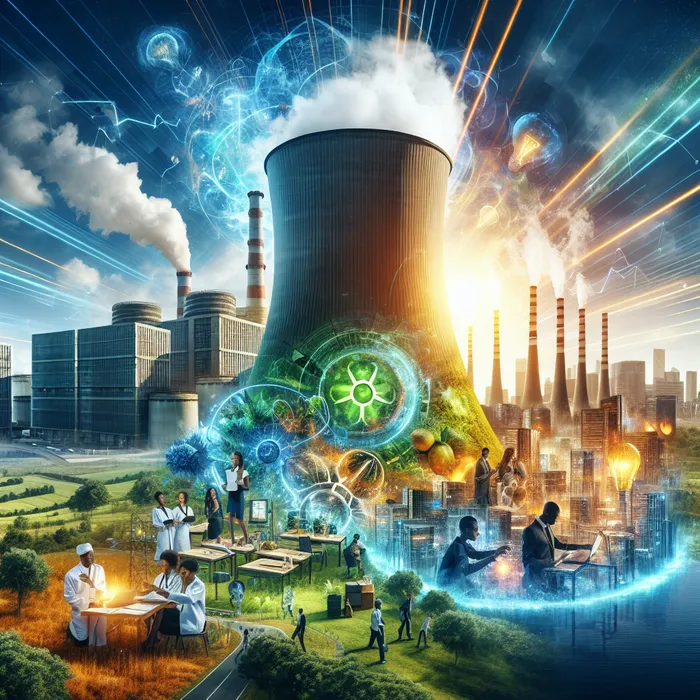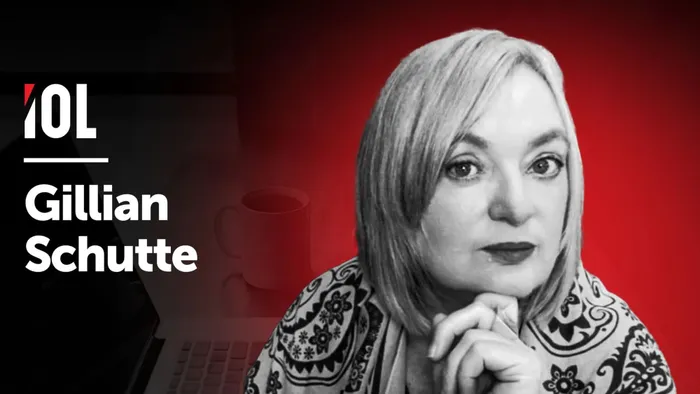Nuclear Belongs to the Youth — South Africa’s Future Depends on It

South Africa's youth are on the brink of an energy revolution, facing unprecedented challenges in a collapsing electricity system. With nuclear power at the forefront, they have the opportunity to reclaim their future and drive the nation towards sustainable energy solutions.
Image: IOL / Ron AI
South Africa’s youth are entering an energy era unlike any before. Digital technologies, electrified transport and data-hungry industries are reshaping economies. Cities buzz with electric scooters and buses. Servers hum night and day. Behind it all is a single truth: without abundant, stable, clean electricity, no modern society can thrive.
Right now, South Africa’s electricity system is buckling. Tariffs keep climbing while reliability collapses. Households supplied by municipalities are paying R2.00 to R4.75 per kilowatt-hour, with Eskom direct customers paying slightly less. It is, shockingly, the poorest of the poor who pay the highest costs, usually through prepaid meters. For the wealthy, this is an irritation. For millions of poor families, it is unaffordable. Many on prepaid meters ration power to the bare minimum, switching off fridges, sitting in the dark, or choosing between electricity and food. Small township businesses are suffocated by both high prices and rolling blackouts.
This is the world young South Africans are inheriting — but it does not have to remain this way.
At World Atomic Week 2025, Rosatom’s First Deputy Director General Kirill Komarov reminded journalists from more than 118 countries that the global consensus has shifted: nuclear power is no longer a sideshow. It is central to achieving clean energy goals, closing the electricity access gap, and powering the technologies of the future. Across the BRICS bloc, nuclear projects are expanding fast. Uzbekistan is combining large and small modular reactors on one site. Ethiopia has signalled its intention to build its first plant. China is building an enormous fleet. This is where the jobs, training opportunities and industrial growth of the next century are emerging.
South Africa has a foothold in this world. Koeberg, our lone nuclear power station, has delivered decades of reliable baseload power. Rosatom has engaged with South Africa for more than a decade. But the decisive question is not whether nuclear technology will shape our future — it already is. The real question is whether South African youth will shape it back.
Nuclear energy is no longer a distant, mysterious technology. Modern Generation III+ reactors use advanced safety systems. Small modular reactors promise shorter construction times and flexible deployment in industrial zones, mining towns and coastal areas. Fast reactors and fuel recycling can turn spent fuel into new energy, shrinking waste timelines from millennia to centuries.
This is a sector that needs engineers, welders, technicians, lawyers, communicators, financiers, medical specialists, planners and community leaders. Every gigawatt-scale plant creates thousands of skilled jobs. Every SMR programme generates opportunities in manufacturing, training and maintenance. BRICS countries are already creating education pipelines and financing tools to support this growth.
For South Africa’s youth, nuclear represents more than an energy source — it is a chance to reclaim agency over the future. Instead of watching tariffs spiral and lights flicker, they can be the generation that builds stable, affordable power. Instead of importing expertise, they can demand training, localisation and meaningful participation.
The world is moving. History will not wait. South Africa’s youth must learn the language of nuclear energy, claim their place in the workforce, and help shape the century that is already unfolding around them.

South Africa's youth are on the brink of an energy revolution, facing unprecedented challenges in a collapsing electricity system. With nuclear power at the forefront, they have the opportunity to reclaim their future and drive the nation towards sustainable energy solutions.
Image: IOL
* Gillian Schutte is a South African writer, filmmaker, poet, and uncompromising social justice activist. Founder of Media for Justice and co-owner of handHeld Films, she is recognised for hard-hitting documentaries and incisive opinion pieces that dismantle whiteness, neoliberal capitalism, and imperial power.
** The views expressed do not necessarily reflect the views of IOL or Independent Media.
Related Topics: